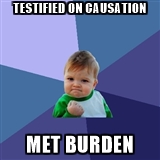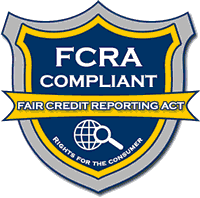 Litigation about the failed drilling of an oil well led to insurance litigation under Louisiana’s Direct Action Statute. The district court granted summary judgment to the insured as to its insurers’ duty to indemnify, and the Fifth Circuit reversed, finding that the indemnity issue was not yet justiciable: “[I]t is readily apparent that ‘facts can be developed’ at trial that would support a finding that at least some of [the insured’s] conduct related to the failed directional drilling project triggered coverage under the relevant policies. Beyond the already existing testimony . . . [the insured] points to a number of witnesses who were not deposed but who could testify at trial on relevant issues such as subcontractors, surveyors, and consultants.” Solstice Oil & Gas LLC v. Seneca Ins. Co., No. 15-30874 (July 21, 2016).
Litigation about the failed drilling of an oil well led to insurance litigation under Louisiana’s Direct Action Statute. The district court granted summary judgment to the insured as to its insurers’ duty to indemnify, and the Fifth Circuit reversed, finding that the indemnity issue was not yet justiciable: “[I]t is readily apparent that ‘facts can be developed’ at trial that would support a finding that at least some of [the insured’s] conduct related to the failed directional drilling project triggered coverage under the relevant policies. Beyond the already existing testimony . . . [the insured] points to a number of witnesses who were not deposed but who could testify at trial on relevant issues such as subcontractors, surveyors, and consultants.” Solstice Oil & Gas LLC v. Seneca Ins. Co., No. 15-30874 (July 21, 2016).
Monthly Archives: July 2016
 A detailed review of tax statutes and other authorities resulted in affirmance of a judgment against Bombardier related to the taxation of its “Flexjet” program; the Court summarized: “Because the law and its application to the real world is continually evolving, it is only natural that guidance in Revenue Rulings evolves too. We find a consistent theme, though, in the IRS’s guidance from the earliest Revenue Rulings grappling with this issue: where an entity is responsible for nearly every service and precondition necessary to transport persons in an aircraft, and it charges for those services, it is providing taxable transportation – even if the bona fide owner of the aircraft itself is the person traveling.” Bombardier Aerospace Corp. v. United States, No. 15-10468 (July 25, 2016).
A detailed review of tax statutes and other authorities resulted in affirmance of a judgment against Bombardier related to the taxation of its “Flexjet” program; the Court summarized: “Because the law and its application to the real world is continually evolving, it is only natural that guidance in Revenue Rulings evolves too. We find a consistent theme, though, in the IRS’s guidance from the earliest Revenue Rulings grappling with this issue: where an entity is responsible for nearly every service and precondition necessary to transport persons in an aircraft, and it charges for those services, it is providing taxable transportation – even if the bona fide owner of the aircraft itself is the person traveling.” Bombardier Aerospace Corp. v. United States, No. 15-10468 (July 25, 2016).
 The ECF records for the Western District of Texas showed that the appellant in Sudduth v. Texas Health & Human Services Commission filed her notice of appeal on August 31 — one day late. Following Franklin v. McHugh, 804 F.3d 627 (2d Cir. 2015), the Fifth Circuit found the ECF notices dispositive and dismissed for lack of jurisdiction. The Court observed that the Western District local rules and Fed. R. App. P. 4(a)(5) allow a party to seek relief from the district court in the event of technical problems with the ECF filing, which the appellant did not do here. Finally, “Sudduth argues that she was not made aware of any jurisdictional defect until this court requested briefing on this issue and that, at the very least, Franklin should not be retroactively applied to her case because it is new law. But, as previously discussed, the local rules and procedures here were sufficiently clear as to the requirements for timely filing, and the onus is on Sudduth, not the court, to be aware of and cure any deficiencies in the notice of appeal.” No. 15-50764 (July 18, 2016).
The ECF records for the Western District of Texas showed that the appellant in Sudduth v. Texas Health & Human Services Commission filed her notice of appeal on August 31 — one day late. Following Franklin v. McHugh, 804 F.3d 627 (2d Cir. 2015), the Fifth Circuit found the ECF notices dispositive and dismissed for lack of jurisdiction. The Court observed that the Western District local rules and Fed. R. App. P. 4(a)(5) allow a party to seek relief from the district court in the event of technical problems with the ECF filing, which the appellant did not do here. Finally, “Sudduth argues that she was not made aware of any jurisdictional defect until this court requested briefing on this issue and that, at the very least, Franklin should not be retroactively applied to her case because it is new law. But, as previously discussed, the local rules and procedures here were sufficiently clear as to the requirements for timely filing, and the onus is on Sudduth, not the court, to be aware of and cure any deficiencies in the notice of appeal.” No. 15-50764 (July 18, 2016).
 Extensive tornado damage to a building at the University of Southern Mississippi led to a hard-fought dispute among insurers. The Fifth Circuit’s detailed affirmance of the district court’s opinion turned on this observation about the losing insurer’s postition: “Were this construction adopted, insurers who covered the same risk would be incentivized to enter into a stare-down, each waiting for the other to blink first in order to seize the opportunity to deny coverage. Such an outcome is neither reasonable nor commercially practicable.” Southern Ins. Co. v. Affiliate
Extensive tornado damage to a building at the University of Southern Mississippi led to a hard-fought dispute among insurers. The Fifth Circuit’s detailed affirmance of the district court’s opinion turned on this observation about the losing insurer’s postition: “Were this construction adopted, insurers who covered the same risk would be incentivized to enter into a stare-down, each waiting for the other to blink first in order to seize the opportunity to deny coverage. Such an outcome is neither reasonable nor commercially practicable.” Southern Ins. Co. v. Affiliate d FM Ins. Co., No. 15060742 (July 21, 2016). (The opinion also features a rare appellate shout-out to T.S. Eliot’s The Hollow Men.)
d FM Ins. Co., No. 15060742 (July 21, 2016). (The opinion also features a rare appellate shout-out to T.S. Eliot’s The Hollow Men.)
 Nicholson worked for Securitas, a security staffing company. She sued about her reassignment from a position as a receptionist at a Securitas customer. The Fifth Circuit partially reversed a summary judgment for Securitas, noting: “If Securitas failed to follow its usual practices in responding to a client’s desire to have an employee removed, such a deviation can support Nicholson’s claim that the company should have known of the alleged discrimination.” Nicholson v. Securitas, No. 15-10582 (July 18, 2016).
Nicholson worked for Securitas, a security staffing company. She sued about her reassignment from a position as a receptionist at a Securitas customer. The Fifth Circuit partially reversed a summary judgment for Securitas, noting: “If Securitas failed to follow its usual practices in responding to a client’s desire to have an employee removed, such a deviation can support Nicholson’s claim that the company should have known of the alleged discrimination.” Nicholson v. Securitas, No. 15-10582 (July 18, 2016).
 In Kubala v. Supreme Production Services, the parties disputed whether an arbitration agreement reached an employment claim that arose before entry into the agreement. The district court found that it did not and denied the motion to compel arbitration. The Fifth Circuit reversed, finding this delegation clause “strikingly similar” to the one at issue in Rent-A-Center v. Jackson, 561 U.S. 63 (2010): “The arbitrator shall have the sole authority to rule on his/her own jurisdiction, including any challenges or objections with respect to the existence, applicability, scope, enforceability, construction, validity and
In Kubala v. Supreme Production Services, the parties disputed whether an arbitration agreement reached an employment claim that arose before entry into the agreement. The district court found that it did not and denied the motion to compel arbitration. The Fifth Circuit reversed, finding this delegation clause “strikingly similar” to the one at issue in Rent-A-Center v. Jackson, 561 U.S. 63 (2010): “The arbitrator shall have the sole authority to rule on his/her own jurisdiction, including any challenges or objections with respect to the existence, applicability, scope, enforceability, construction, validity and
interpretation of this Policy and any agreement to arbitrate a Covered Dispute.” The Court summarized: “The court appears to have thought that the question at the first step of the analysis is whether there is an agreement to arbitrate the claim currently before the court. But as we have explained, the only issue at the first step is whether there is any agreement to arbitrate any set of claims.” No. 15-41507 (July 20, 2016).
“ We now make explicit what we have held in unpublished, nonprecedential opinions. HUD regulations govern the relationship between the reverse-mortgage lender and HUD as insurer of the loan. HUD regulations do not give the borrower a private cause of action unless the regulations are expressly incorporated into the lender-borrower agreement.” Johnson v. World Alliance Financial, No. 15-50881 (July 18, 2016).
We now make explicit what we have held in unpublished, nonprecedential opinions. HUD regulations govern the relationship between the reverse-mortgage lender and HUD as insurer of the loan. HUD regulations do not give the borrower a private cause of action unless the regulations are expressly incorporated into the lender-borrower agreement.” Johnson v. World Alliance Financial, No. 15-50881 (July 18, 2016).
 In an uncommon example of a successful application for an appellate stay, the Fifth Circuit stayed the EPA’s rulings about Texas’s haze reduction plans. The Court found a likelihood of success on the merits, based on, inter alia, the degree of deference required by EPA, the lack of on-point authority supporting its position, and statutory limits on its power. As to irreparable injury, the Court noted the substantial compliance costs faced by power companies (to the point of risking
In an uncommon example of a successful application for an appellate stay, the Fifth Circuit stayed the EPA’s rulings about Texas’s haze reduction plans. The Court found a likelihood of success on the merits, based on, inter alia, the degree of deference required by EPA, the lack of on-point authority supporting its position, and statutory limits on its power. As to irreparable injury, the Court noted the substantial compliance costs faced by power companies (to the point of risking  “unemployment and the permanent closure plants”), and the lack of any mechanism for them to recover those costs if the EPA’s rule was invalidated. The Court also noted “the threat of grid instability and potential brownouts,” as well as the potential injury from a violation of the federalism principles in the Clean Air Act. Finally, the court “agree[s] with Petitioners that the public’s interest in ready access to affordable electricity outweighs the inconsequential visibility differences that the federal implementation plan would achieve in the near future.” Texas v. EPA, No. 16-60118 (July 15, 2016).
“unemployment and the permanent closure plants”), and the lack of any mechanism for them to recover those costs if the EPA’s rule was invalidated. The Court also noted “the threat of grid instability and potential brownouts,” as well as the potential injury from a violation of the federalism principles in the Clean Air Act. Finally, the court “agree[s] with Petitioners that the public’s interest in ready access to affordable electricity outweighs the inconsequential visibility differences that the federal implementation plan would achieve in the near future.” Texas v. EPA, No. 16-60118 (July 15, 2016).
 A putative class of New Orleans landowners sought damages arising from the construction of a flood-control canal. The Fifth Circuit affirmed the denial of class certification, noting: “This lawsuit seeks to recover different damages caused by different acts committed by different defendants at different times over a five year period.” Even under Louisiana state law theories that arguably reduced the proof problems, the Court still found fatal problems as to “individual questions regarding causation” (and the exclusion of other potential causes), as well as damages: “Any . . . formula would at a minimum need to take account of the variances in age, size, type, construction, condition, soil composition, and location of the properties.” The Court distinguished other cases that affirmed class certifications as involving “single episodes of tortious conduct usually committed by a single defendant.” Crutchfield v. Sewerage & Water Board, No. 15-30709 (July 13, 2016).
A putative class of New Orleans landowners sought damages arising from the construction of a flood-control canal. The Fifth Circuit affirmed the denial of class certification, noting: “This lawsuit seeks to recover different damages caused by different acts committed by different defendants at different times over a five year period.” Even under Louisiana state law theories that arguably reduced the proof problems, the Court still found fatal problems as to “individual questions regarding causation” (and the exclusion of other potential causes), as well as damages: “Any . . . formula would at a minimum need to take account of the variances in age, size, type, construction, condition, soil composition, and location of the properties.” The Court distinguished other cases that affirmed class certifications as involving “single episodes of tortious conduct usually committed by a single defendant.” Crutchfield v. Sewerage & Water Board, No. 15-30709 (July 13, 2016).
In a fraudulent joinder analysis, the Fifth Circuit observed: “The Mastronardis’ claims against Estrada and Marin are insufficiently pled under either the federal standard or the revised Texas standard, which now tracks the federal standard.” Mastronardi v. Wells Fargo Bank, N.A., No. 15-11028 (June 29, 2016) (citing, inter alia, Tex. R. Civ. P. 91a.1). See also Int’l Energy Ventures v. United Energy Group, No. 14-20552 (March 31, 2016).
 Granados slipped and fell on a puddle in Wal-Mart. The evidence showed that “[p]rior to the slip, a Wal-Mart employee named Mercedes Acosta had been mopping the store’s checkout area. According to video surveillance of the incident, she briefly mopped the entrance of the aisle in which Granados slipped about five minutes prior to the incident, coming within approximately five feet of the puddle’s location with her torso generally facing it. At her deposition, Acosta testified that although she normally looks for puddles and other hazards while cleaning, she did not see the puddle in which Granados slipped when she mopped the aisle. No other witness testified to seeing the puddle. However, an assistant manager at the store who viewed the puddle after Granados slipped testified that someone actively looking for hazards ‘should have noticed the puddle from approximately five feet away if it were present.” Unfortunately for Granados, this evidence did not establish actual knowledge of the puddle, and also did not establish constructive knowledge under Texas law, which emphasizes how long the puddle has been in place (a fact as to which she had no proof). Granados v. Wal-Mart Stores, Inc., No. 15-10837 (June 30, 2016, unpublished).
Granados slipped and fell on a puddle in Wal-Mart. The evidence showed that “[p]rior to the slip, a Wal-Mart employee named Mercedes Acosta had been mopping the store’s checkout area. According to video surveillance of the incident, she briefly mopped the entrance of the aisle in which Granados slipped about five minutes prior to the incident, coming within approximately five feet of the puddle’s location with her torso generally facing it. At her deposition, Acosta testified that although she normally looks for puddles and other hazards while cleaning, she did not see the puddle in which Granados slipped when she mopped the aisle. No other witness testified to seeing the puddle. However, an assistant manager at the store who viewed the puddle after Granados slipped testified that someone actively looking for hazards ‘should have noticed the puddle from approximately five feet away if it were present.” Unfortunately for Granados, this evidence did not establish actual knowledge of the puddle, and also did not establish constructive knowledge under Texas law, which emphasizes how long the puddle has been in place (a fact as to which she had no proof). Granados v. Wal-Mart Stores, Inc., No. 15-10837 (June 30, 2016, unpublished).
 The unsuccessful parties in the arbitration of a real estate dispute challenged confirmation of the award. The Fifth Circuit rejected the argument that the phrase “any other misbehavior by which the rights of any party have been prejudiced in 9 USC § 10(a)(3) could be read as applying to the district court. It also rejected a discovery-related argument when “[t]he arbitrator decided not to issue subpoenas when the Investors failed to answer his questions about what evidence they needed from the two witnesses, who were outside the legal subpoena range, and who were less involved in the relevant transactions than the two Rainier witnesses who testified live at the hearing.” Rainier DSC 1 LLC v. Rainier Capital Management LP, No. 15-20383 (July 7, 2016).
The unsuccessful parties in the arbitration of a real estate dispute challenged confirmation of the award. The Fifth Circuit rejected the argument that the phrase “any other misbehavior by which the rights of any party have been prejudiced in 9 USC § 10(a)(3) could be read as applying to the district court. It also rejected a discovery-related argument when “[t]he arbitrator decided not to issue subpoenas when the Investors failed to answer his questions about what evidence they needed from the two witnesses, who were outside the legal subpoena range, and who were less involved in the relevant transactions than the two Rainier witnesses who testified live at the hearing.” Rainier DSC 1 LLC v. Rainier Capital Management LP, No. 15-20383 (July 7, 2016).
 In the trial of a dispute about the handling of another lawsuit, the plaintiffs’ lawyer in that other suit testified that he would not have settled for less than $3 million. On appeal, two expert reports were cited in opposition to that testimony, and the Fifth Circuit rejected them. It noted that the trial court was within its rights to credit the lawyer’s testimony, and that the reports had been prepared pretrial and thus could not have addressed that testimony. RSUI Indemnity Co. v. American States Ins. Co., No. 15-30976 (July 8, 2016, unpublished).
In the trial of a dispute about the handling of another lawsuit, the plaintiffs’ lawyer in that other suit testified that he would not have settled for less than $3 million. On appeal, two expert reports were cited in opposition to that testimony, and the Fifth Circuit rejected them. It noted that the trial court was within its rights to credit the lawyer’s testimony, and that the reports had been prepared pretrial and thus could not have addressed that testimony. RSUI Indemnity Co. v. American States Ins. Co., No. 15-30976 (July 8, 2016, unpublished).
 Fannie Mae foreclosed on an apartment complex, in part because its management allowed six liens to attach to the property in breach of the loan documents. Self, a guarantor sued for the remaining deficiency, sought discovery about the validity of the liens. The Fifth Circuit agreed with the district court that this request was not a reason for continuance of a ruling on Fannie Mae’s summary judgment motion: “[E]ven if Self could establish that the liens were paid off or expired, such information would not negate his failure to timely secure the release of record of the liens or otherwise timely cure the liens as required under the plain and unambiguous language in the parties’ loan documents.” Fannie Mae v. Self, No. 15-20466 (July 6, 2016, unpublished).
Fannie Mae foreclosed on an apartment complex, in part because its management allowed six liens to attach to the property in breach of the loan documents. Self, a guarantor sued for the remaining deficiency, sought discovery about the validity of the liens. The Fifth Circuit agreed with the district court that this request was not a reason for continuance of a ruling on Fannie Mae’s summary judgment motion: “[E]ven if Self could establish that the liens were paid off or expired, such information would not negate his failure to timely secure the release of record of the liens or otherwise timely cure the liens as required under the plain and unambiguous language in the parties’ loan documents.” Fannie Mae v. Self, No. 15-20466 (July 6, 2016, unpublished).
 The district court required the plaintiff in an FLSA case to submit her phone to a forensic examiner. It then awarded significant sanctions when the defendants’ “inspection revealed that the text messages in question were not on [Plaintiff’s] phone, that the mobile application allegedly containing such text messages was not on the phone, and that the phone appeared to have been reset or newly activated only three days before the forensic inspection.” The Fifth Circuit found no abuse of discretion; footnote 2 of the opinion details several unsuccessful explanations and counterarguments offered by the plaintiff, which had no traction here but could be of interest in a future e-discovery dispute involving similar issues. Timms v. LZM, LLC, No. 15-20700 (July 5, 2016, unpublished).
The district court required the plaintiff in an FLSA case to submit her phone to a forensic examiner. It then awarded significant sanctions when the defendants’ “inspection revealed that the text messages in question were not on [Plaintiff’s] phone, that the mobile application allegedly containing such text messages was not on the phone, and that the phone appeared to have been reset or newly activated only three days before the forensic inspection.” The Fifth Circuit found no abuse of discretion; footnote 2 of the opinion details several unsuccessful explanations and counterarguments offered by the plaintiff, which had no traction here but could be of interest in a future e-discovery dispute involving similar issues. Timms v. LZM, LLC, No. 15-20700 (July 5, 2016, unpublished).
 Bacharach, upset by the handling of credit reporting by SunTrust, sued it under the FCRA. The Fifth Circuit affirmed summary judgment for SunTrust, noting:
Bacharach, upset by the handling of credit reporting by SunTrust, sued it under the FCRA. The Fifth Circuit affirmed summary judgment for SunTrust, noting:
- Reporting about a failed “flip” of commercial property — especially when the alleged losses involved lost rental income — did not fall within the scope of the FCRA;
- Evidence of other, unrelated payment problems during the relevant period negated the element of causation; and
- “Vague and conclusory deposition testimony” does not establish actionable emotional distress under the FCRA.
Bacharah v. Suntrust Mortgage, No. 15-31009 (June 30, 2016).